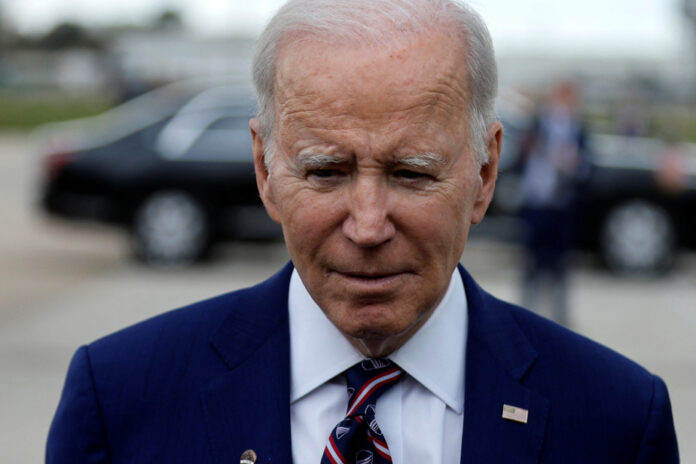(Durham) Joe Biden on Tuesday launched a series of trips across the United States to tout his investments in the manufacturing industry, foreshadowing a possible campaign theme.
“I am determined that we will produce again in this country,” the US president said from a factory of semiconductor manufacturer Wolfspeed in Durham, North Carolina (southeast).
This industry group recently announced a $5 billion investment there, a welcome move from the perspective of the Biden administration, which has made the return of microchip production to the United States a priority.
The president’s visit on Tuesday kicks off a three-week “Invest in America” tour, in which senior White House officials will visit some 20 states to promote industrial job creation, including in the electronics sector, largely subsidized by the federal state.
According to the American executive, more than $435 billion in new investments have been announced in the United States since the start of Joe Biden’s mandate, half in energy transition and electric cars, the other in semi- drivers.
“If we invest in the United States, we can change the future of this country,” said the Democrat, who has yet to formally announce his 2024 presidential candidacy but has indicated his intention to run again .
The Republican opposition accuses him in return of being responsible for the high inflation. “Biden is out of touch,” party leader Ronna McDaniel said in a statement.
From North Carolina, the president has also taken aim at his political opponents, criticizing the refusal of the right to approve the raising of the debt ceiling.
Many Republican tenors ask him, as a precondition, to cut federal government spending. If that cap were actually hit in June, it could trigger a US default and, economists say, send the global economy into turmoil.
“They are putting our economy at risk by refusing to pay the country’s bills,” Joe Biden said.
Republican Speaker of the House of Representatives Kevin McCarthy wrote him a letter about it on Tuesday, accusing him of “refusing to negotiate on significant changes to state spending, which is out of control.”


















